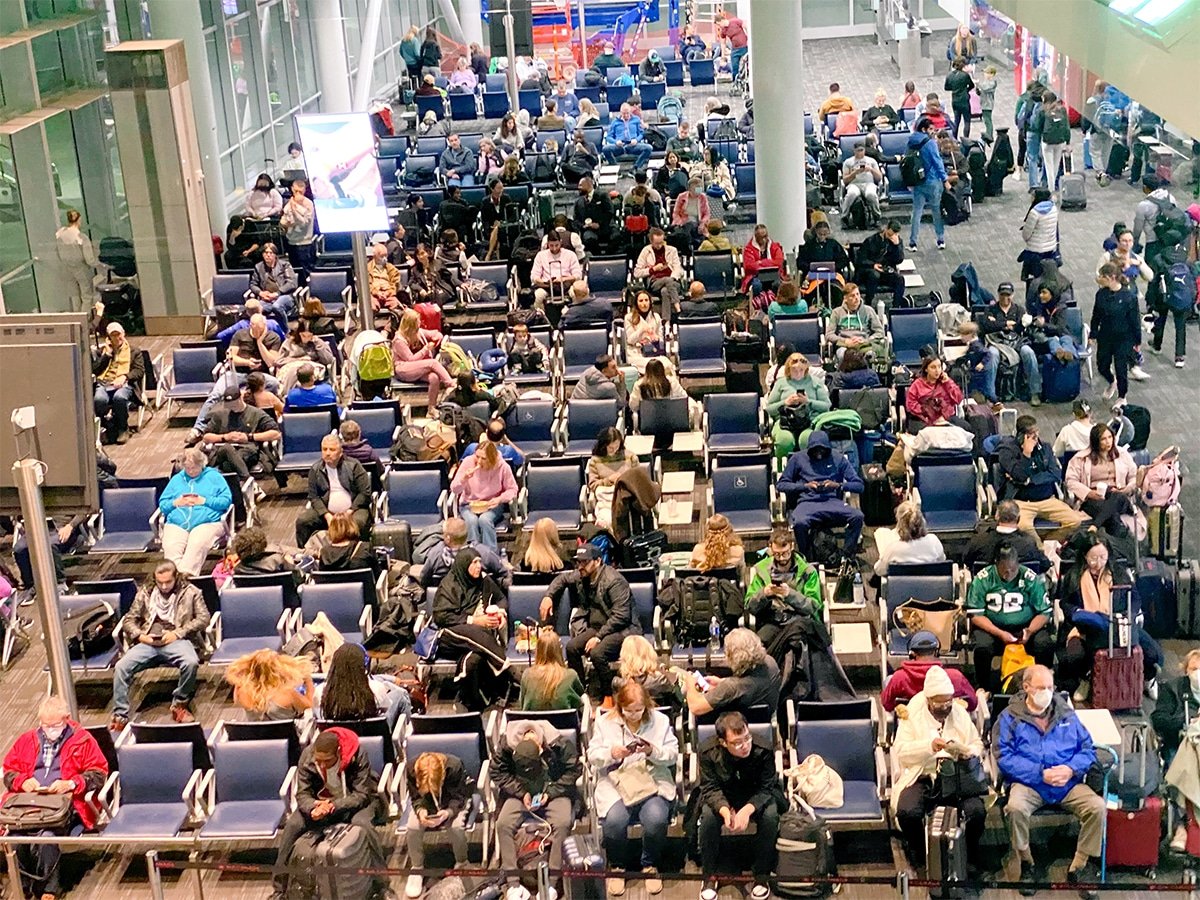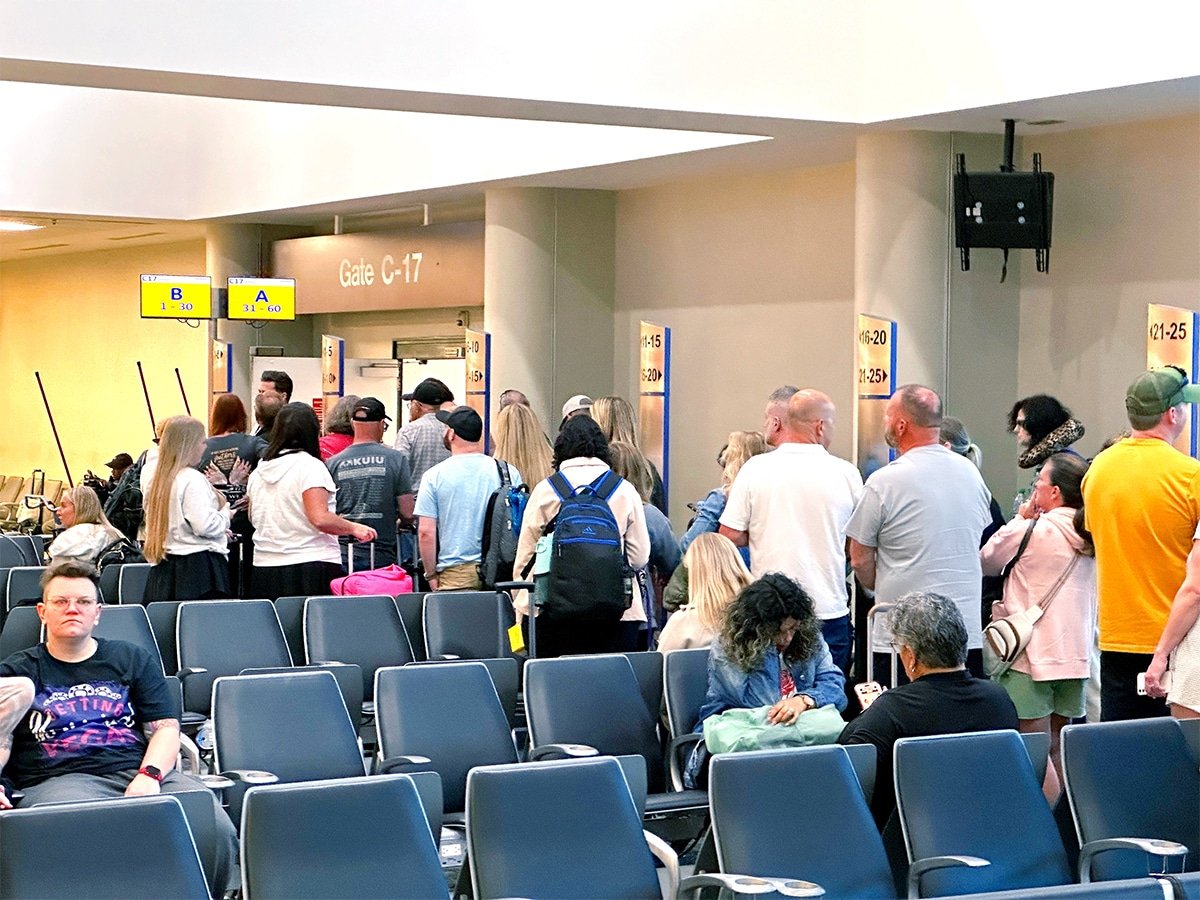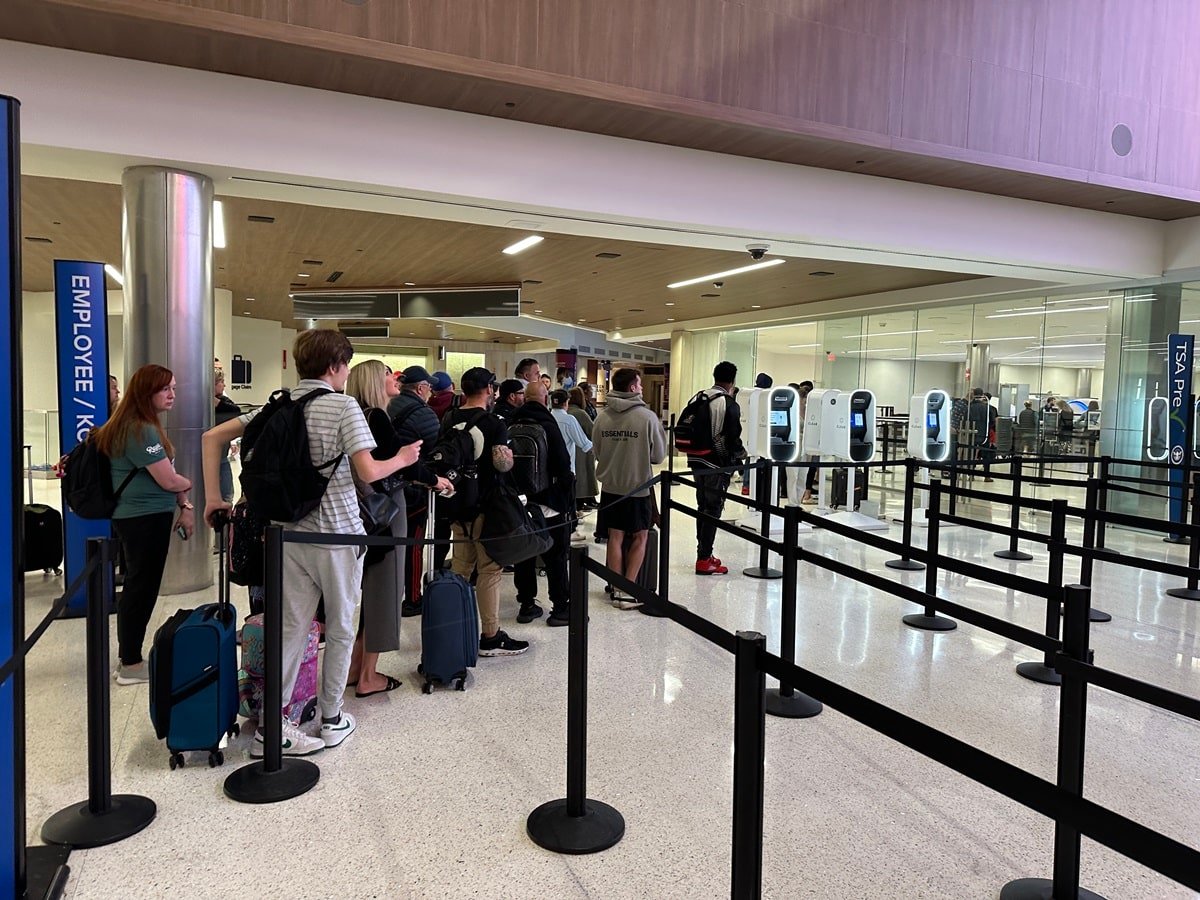Savvy travelers know that when they travel, they have to be on guard, always on the lookout for an endless array of scams and scammers. I’ve written about many scams, including how to spot fake QR codes, restaurants and bars switching the menu prices on unsuspecting tourists, pickpockets and many, many more. While we’re on the topic, don’t fall for these hotel scams and these vacation rental scams.
 This post contains references to products from one or more of our advertisers. We may receive compensation when you click on links to those products. For an explanation of our Advertising Disclosure, visit this page.
This post contains references to products from one or more of our advertisers. We may receive compensation when you click on links to those products. For an explanation of our Advertising Disclosure, visit this page.
Savvy travelers also know not to use public USB charging stations and the FBI’s Denver office just issued a reminder to residents in their territory, which everyone needs to know. The FBI Denver just tweeted: “Avoid using free charging stations in airports, hotels or shopping centers. Bad actors have figured out ways to use public USB ports to introduce malware and monitoring software onto devices. Carry your own charger and USB cord and use an electrical outlet instead.”
Avoid using free charging stations in airports, hotels or shopping centers. Bad actors have figured out ways to use public USB ports to introduce malware and monitoring software onto devices. Carry your own charger and USB cord and use an electrical outlet instead. pic.twitter.com/9T62SYen9T
— FBI Denver (@FBIDenver) April 6, 2023
The practice the FBI is referring to is called “juice jacking”. When I travel, I carry a separate bag for all of my electronic gadgets; this tech organizer is an excellent choice. Inside, I keep extra charging cables, a USB data blocker, portable chargers and if I’m going on a cruise or traveling internationally, I also bring a universal adaptor, power strip and extension cord.
In order to prevent someone from stealing your data or installing malware on your phone or tablet, never use public charging stations, especially in airports and hotels. If you absolutely must, put a USB data blocker on before plugging in. Otherwise, the safest thing to do is travel with your own personal portable phone charger like this one. There’s a reason that flight attendants say that it’s the gadget they never travel without.
The FBI’s website also has more helpful tips. They write: “Everyday tasks—opening an email attachment, following a link in a text message, making an online purchase—can open you up to online criminals who want to harm your systems or steal from you. Preventing internet-enabled crimes and cyber intrusions requires each of us to be aware and on guard.”
They also advise that if you are the victim of an online or internet-enabled crime, to file report with the Internet Crime Complaint Center (IC3) as soon as possible as “crime reports are used for investigative and intelligence purposes.” They can also help support the recovery of lost funds.
Visit ic3.gov for more information, including tips and information about current crime trends.
More Scams to Watch Out For
- Is Your Hotel Scamming You?
- Don’t Fall For It: Scammers Are Pretending to be Customs and Border Protection Agents
- Cybersecurity and Fraud Expert Shares Tips on How Not to Get Scammed When Traveling
- How To Avoid Vacation Rental Scams
- Don’t Fall For These QR Code Scams
- 7 Tips For Avoiding Black Friday Scams Online
- These Are the Latest European Travel Scams to Know Before You Go
- Don’t Fall For the Falling Lady Scam
Want more travel news, tips and deals? Sign up here for Johnny Jet’s Daily Travel Tip newsletter! Just fill in your email address and check the Daily Travel Tip box—and you’ll have Johnny’s best tips, straight to your inbox each day!








Theoretically possible but there hasn’t been one documented case of this happening.